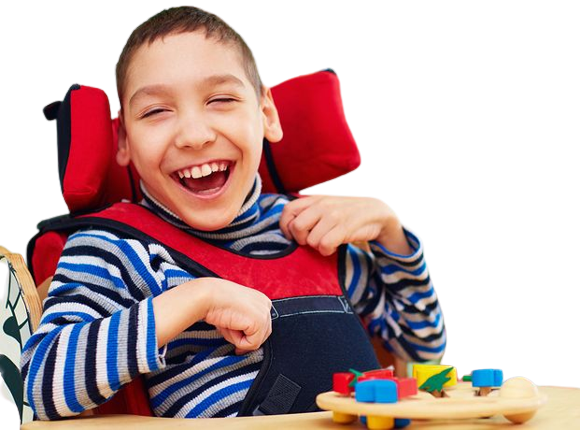Do you know that the liver is the only organ in the body with special regeneration abilities, allowing it to grow back to a healthy, normal size after possibly experiencing damage as a result of a variety of uncertain circumstances?
The liver is an essential organ that filters and removes harmful substances from the blood and controls the number of different nutrients the body receives, among many other vital tasks. A liver donation may be necessary for patients with conditions like liver cancer, liver cirrhosis, and in some circumstances, acute or chronic hepatitis.
The survival rate following a successful liver transplant is relatively high. However, it can be a challenging operation and is typically reserved as a last resort for patients with severe liver diseases. The cost of a liver transplant may vary based on its complexity and several other factors. After a liver transplant, the life expectancy is comparable to that of a healthy individual without comorbidities.
The liver transplant success rate is also closely influenced by the transplant patient’s commitment to aftercare.
Here, we go over what to anticipate after a liver transplant procedure and the required safety measures and aftercare to give the transplant recipient a better chance of surviving.
The patient is moved to the intensive care section immediately following surgery, where he or she is carefully monitored by numerous machines. Until the patient awakens and can breathe without any trouble on their own, a ventilator and a tube in the trachea are connected to help the patient breathe and deliver oxygen to the lungs. Blood tests, X-ray images, and ECGs are just a few of the various inspections and tests that are performed. To confirm the indications that the transplanted liver has been accepted by the body and is operating normally, physicians frequently perform liver tests. In some circumstances, the physician might also administer a blood transfusion.
How long is the recovery time?
After three to five days, once the patients have completely recovered their senses, can breathe properly, and have other vitals in order, they are typically transferred to the standard hospital room. Depending on the patient’s recovery, the typical length of time in the hospital after a liver transplant is two to three weeks. Following surgery, they can recover at home for three to six months, but they must adhere to a stringent dietary and lifestyle plan and take their prescribed medications as directed by their surgeon.

Knowing all the necessary healthy components
Your liver’s health deteriorates and becomes unhealthy when you eat a bad or unbalanced diet. After the procedure, you must adhere to a rigorous balanced diet that includes lots of fruits, vegetables, an animal protein with good fat, a good ratio of carbohydrates to proteins, plenty of fluids, and foods high in antioxidants.
Antioxidants can hasten the healing process after accidents. As a consequence, to hasten your recovery from surgery, your doctor might suggest that you consume foods high in antioxidants. The well-known antioxidants and the sources of each are listed below for you to incorporate into your diet:
- Beta-carotene: Yellow, orange, and green leafy vegetables and fruits are the richest sources of beta-carotene (such as carrots, spinach, lettuce, tomatoes, sweet potatoes, and broccoli).
- Lycopene: Red foods and veggies like tomatoes, pink grapefruits, guavas, apricots, and watermelons are good sources of this antioxidant.
- Selenium: Animal protein foods are typically excellent providers of selenium. The items that contain the most selenium are seafood, organ meats, and Brazil nuts.
- Vitamin A: Liver, fish, eggs, and dairy products contain the greatest concentrations of preformed vitamin A. Another excellent supply of vitamin A is leafy green vegetables, orange and yellow produce, tomato products, fruits, and some vegetable oils.
- Vitamin C: Vitamin C can be found in varying amounts in all fruits and veggies. The richest forms of vitamin C are citrus fruits and juices like orange and grapefruit.
Exercise
It’s a common misconception that one should avoid strenuous activity or exercise altogether after surgery, but this is not accurate in the case of liver transplant surgeries. You should continue to exercise and participate in regular physical activity after a liver transplant to maintain and enhance your overall physical and mental health.
Regular walking is frequently recommended immediately following transplant surgery. Depending on how quickly you recover, you may add additional physical tasks.
By continuing to do the physical things you enjoy, such as walking, cycling, swimming, low-impact strength training, and other sports, after a transplant, you can maintain a healthy, active lifestyle. However, be careful to speak with your doctor before starting or changing your post-transplant exercise regimen.

TargetWalk Rehabilitation after Liver Transplant: The path to healing following a Liver Transplant
To monitor the patient’s recovery, numerous checkups and consultations may still be necessary after the patient is released from the hospital. For approximately three months, the patient may be needed to submit a few blood tests and other examinations every week, after which the frequency of the tests may be decreased.
Approximately six months may pass after surgery before the patient can resume work or normal activities. Taking care of their overall health is necessary when they are recovering at home and building stamina.
The patient must take immune medications as directed. Immunosuppressants must be taken for the rest of one’s life to prevent the body from rejecting the new liver because it views it as a foreign object and attempts to destroy it. The patient must take care of their health because these medications also have a detrimental impact on the body’s immune system as a whole. Patients must maintain a disciplined lifestyle and adhere to the doctor’s nutrition recommendations.
Nutrients and Diet
To assist patients to comprehend their daily dietary needs following surgery, liver transplant doctors recommend nutritionists to them. Typically, a diet low in sodium, fat, and sugar is advised. Patients must refrain from drinking alcohol in any form because it harms the liver. Due to their effect on a class of immunosuppressive medicines, grapefruit, and grapefruit juice should also be avoided.
Other changes in way of living
To enhance the patient’s general physical and emotional health, the dietician and/or surgeon may also advise them to lead more active lifestyles. To improve the quality of their lives, patients must truly integrate the exercise, walking, and other physical activities recommended by the doctor.
Environmental Hygiene
From one’s own home, one can take the first move towards a full recovery. Family members should ensure that the patient’s home has adequate ventilation when they welcome them back after a liver transplant. In the first three months after the operation, when visiting crowded areas, the patient should wear a mask. It is recommended to always wash your hands after you encounter someone new.
Routine examination
Although liver transplantation has gained popularity in India as a treatment for liver disorders, post-operative care is crucial for maximizing long-term outcomes. As a result, the recipient must frequently attend follow-up clinics. Due to a propensity for weight gain, the possibility of diabetes, and high blood pressure, there is an increased chance of coronary artery disease following the procedure.
Medications
One should never skip their recommended medications as they are necessary for the healing process. It is also crucial for patients’ families to become acquainted with the medications prescribed and make sure the patient takes the medication as directed. Very rarely, wound care may be crucial due to liver transplant patients’ slow healing rates.
What potential post-transplant problems might there be?
Due to the complicated nature of the procedure and the prolonged recovery time, complications may arise after a liver donation. Transplant rejection, liver disease recurrence, infections, diabetes, bone thinning, and excessive weight gain are just a few of the typical side effects that transplant recipients may encounter. Due to this, patients must visit their doctors frequently and adhere to the recommended treatments and safety measures for the rest of their lives.
Recovery: Coping and Support
The typical recovery time following a successful liver transplant may last up to 6 months or more, depending on the severity of your injury and the healing process. Typically, you can resume your normal activities one month after the operation.
You would require a good balance of a healthy diet and regular exercise for a healthy recovery after a successful liver transplant operation, which will make the process of recovery quick and adaptable for you.
It’s common to experience stress or overwhelm while awaiting a donation or to worry about being rejected, going back to work, or other problems after a transplant. You can cope during this stressful period by asking your friends and family for support
Throughout the transplant procedure, your transplant team can also help you with other helpful resources and coping mechanisms, such as:
- Joining a transplant patient support club: Sharing your story with others can help you feel more at ease.
- Finding a rehab facility: Your social worker might be able to put you in touch with vocational rehabilitation services offered by your native state’s department of rehabilitation if you’re going back to work.
- Setting reasonable standards and goals: Be aware that living after a transplant may not be a perfect replica of life before. Stress can be decreased by having reasonable standards for outcomes and recovery times.
- Acquiring knowledge: Ask questions if you don’t comprehend something about your procedure and learn as much as you can about it. Understanding is powerful.
Physical Therapy Post-Liver Transplant
Physical therapy is typically required for hospital patients who have undergone operations, particularly those who have undergone major surgery like a transplant. After surgery, you lose muscle, stamina, and flexibility if you spend a lot of time lying in a hospital bed. You get quickly tired, and your muscles weaken and tighten.
One may find it challenging to move around, sit, stand, or walk right after surgery. Your body mustn’t lose its capacity for movement. Following a transplant, physical therapy will maintain the patient’s body healthy and robust. It will aid in preventing your muscles from deteriorating as they heal.
Physical therapy also has the potential to lessen some of your patient’s discomfort and even head off potential post-operative complications. Your health will improve thanks to physical therapy because it will give your body more stamina, suppleness, and strength.
You might not have been able to use all muscles before the transplant due to illness. Moving in certain situations could have been painful. Any muscles that you didn’t use or didn’t use enough before the transplant can be developed through physical therapy.
What do we treat?
- Myofascial pain syndrome
- Disc pathologies
- Osteoarthritis
- Spondylitis
- Spondylolisthesis
- Pre and Post hip and knee replacement rehabilitation
Our specialties
- Spinal Cord Injury Rehabilitation
- Traumatic Brain Injury Rehabilitation
- Guillain-Barré syndrome Rehabilitation
- Stroke Rehabilitation
- Cerebral Palsy Rehab
- Autism Rehabilitation
- Down Syndrome Rehab
- Huntington’s chorea Rehab
Our Facilities
- Osteopathy and Manual Therapy
- Electrotherapy ( including FES)
- Exercise Therapy
- Customize wheelchair gym-based setup
- Taping, Cupping, etc
Our Innovative Assistive Technology
Research shows that telerehabilitation services successfully lower the need for painkiller prescriptions, readmissions, and extra follow-up care, as well as raise the general quality of life.
It enables people with disabilities, the elderly, and others who have trouble engaging fully in society to live autonomous, healthy, and fruitful lives by taking part in social, professional, and educational activities. AT lessen the strain placed on caretakers and the requirement for specialized health and support services.
Though there are many different and helpful rehabilitation technologies, the Target Walk has one in particular called Xcite2 that is among the most frontline ones to look out for right now in physical therapy centers.
People with neurological impairments need to have access to meaningful, task-specific repetitions of functional activities to promote nervous system recovery and enhance health and independence for the best results. In this critical stage of continuing rehabilitation, Xcite2 aids doctors and patients.
By doing the following, Xcite2 strengthens the effects of conventional therapeutic exercises that promote:
- Muscle re-education
- Making active muscular contractions more effective
- Enabling dynamic, mutual movement patterns for standardized input
- Relaxation of muscle spasms
- Increasing local blood circulation
- Prevention of disuse atrophy
About Extensive Post Operative Care Unit at TargetWalk
- Our Purpose
We at Target Walk work hard to give our valued patients the finest rehab after liver transplant services in Gurgaon, Gurugram with the utmost care.
- Professional Instructors
One highly regarded and experienced team in Gurgaon is from the Target Walk Physical Therapy clinic, which has many years of experience servicing both individual and corporate clients.
- Best Facility
The greatest success rates and lowest infection rates have been attained by the After Liver Transplant Rehabilitation program, which is committed to a compassionate, rational, and patient-friendly approach.
FAQ’s - Frequently Asked Questions
After a liver transplant, the majority of people spend 7 to 10 days in the hospital. After that, they usually recover at home before going back to jobs or school three months later.
Patients with liver disease and transplant recipients may benefit from rehabilitation techniques by becoming stronger physically, preventing overexertion, enhancing aerobic capacity, and engaging in more physical exercise.
Although recovering from a liver transplant can take some time, the majority of patients ultimately resume most of their regular activities and enjoy a high standard of living. Though you can typically start gradually increasing your activities after a few weeks, it can take up to a year to fully recover.

